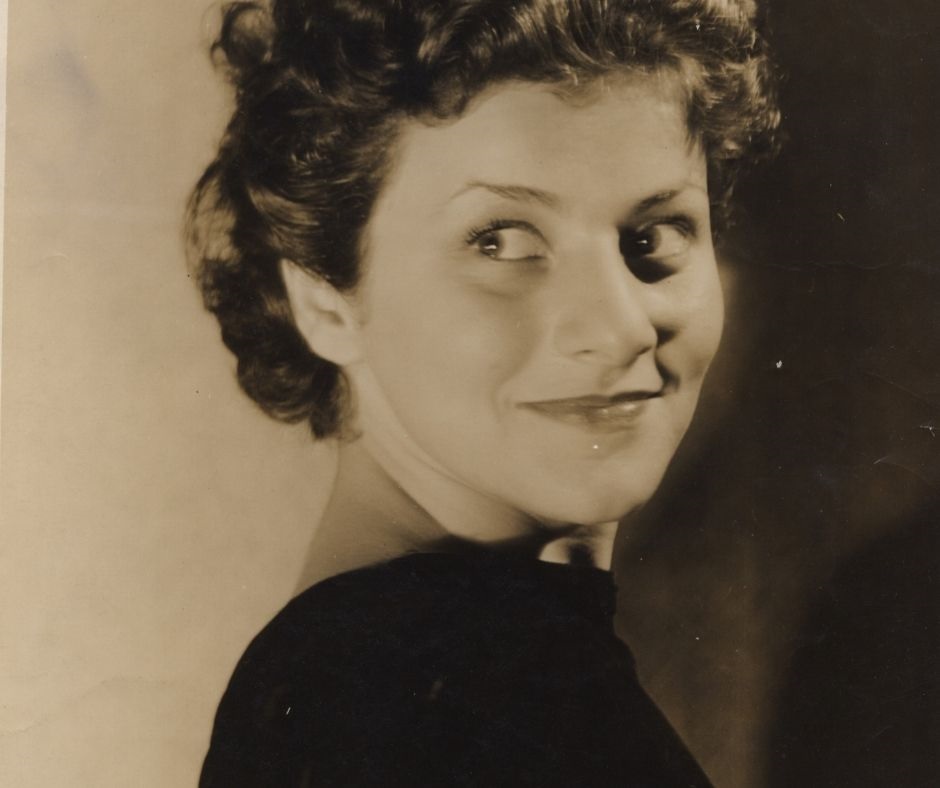The Legacy of Viola Spolin

I recently watched the documentary “Inventing Improv,” about Viola Spolin, an actor, director and most importantly, a teacher, who wrote one of the most important books about improvisation ever written, Improvisation for the Theater.
Spolin is often referred to as "the mother of improv" and the documentary explores her lasting impact on this art form. In fact, many of the things that we take for granted today in improv came directly from Spolin.
For example, in her book, which was published back in 1963, she outlined more than 200 improv exercises that she called "theater games" and explained her particular method for teaching them. And many, many of those games are ones I’m sure you’ve played in classes today.
The first time I was exposed to Spolin’s work, I didn’t even know it. I was an impatient 18-year-old kid from the suburbs who drove into the city once a week to take an improv class at The Players Workshop of The Second City. It was run by Josephine Forsberg, who had trained under Spolin. I didn’t have a clue about improv or the importance of these Spolin games. I just knew I wanted to be funny — not walk around in space like tiger. I thought, “I don’t have time for this.” When in fact, the thing I needed to learn most was to play, which was a the core of Spolin’s teaching. Through playing the games, came the spontaneity and the creativity without me even knowing it.
Then I was fortunate enough to study with the brilliant Martin DeMaat at Columbia College, who also happened to be Forsberg’s nephew. Martin was a direct disciple of Spolin, and even though he was one of the best teachers I have ever worked with, he had to put up with me constantly asking, “why do we have to these games? Can’t we just do scenes?”
It was until years later when I started teaching improv that I realized how necessary those games are when doing scenes.
I am not a Spolin purest. I have had many influences in my teaching, and I try to incorporate what I like and leave out the rest. But when it comes to building ensemble, I have not found a better substitute than using Spolin’s games, and believe me, I have experimented over the years.
Whenever I have tried doing fewer warm-up games with my students, I’ve always found it effects the scene work. There is no substitute for play. Play is what bonds people, connects them on deeper level. That’s what Spolin fundamentally understood.
I also admire Spolin for the fact that she was improvising right along with her students. If she was having hard communicating something, rather than stopping the class and trying to explain it, she used it as an opportunity to create a game to address the issue. She had faith that the games could teach concepts so much better than her own words could.
This is the holy grail for me as an improv teacher: to show more and talk less. It takes real discipline to not talk too much in class, but instead put your faith in the games to help people learn through experience.
Although I had a cursory knowledge about Spolin before watching “Inventing Improv,” learning more about the origins of Spolin’s work, as well as how she influenced the commercial success of The Compass Players and Second City, was truly eye-opening.
In a lot of ways, her work has come full circle. She never started out trying to find a way to make people funnier. Instead, she started out teaching these theater games to kids on the west side of Chicago because she saw it help with their socialization. It’s awe inspiring to think about the millions different ways her games are being used today with everyone from scientists to people who work for corporations to kids with learning disabilities.
Spolin never wanted to be considered a guru. Even after some of the actors from Second City, which she had trained, started to gain notoriety, she never sought out fame herself. It’s probably why her work is still so relevant today because she was all about furthering the work itself, and not about promoting the personality who created it.
I am glad to see Viola finally get some recognition for her work and her contribution to improv. I hope more generations of improvisers to come realize just how big of an impact she had.
By the way, if you’re interested in watching the documentary, it is available in full at WTTW.org. And you can listen to my interview with the filmmaker here.

